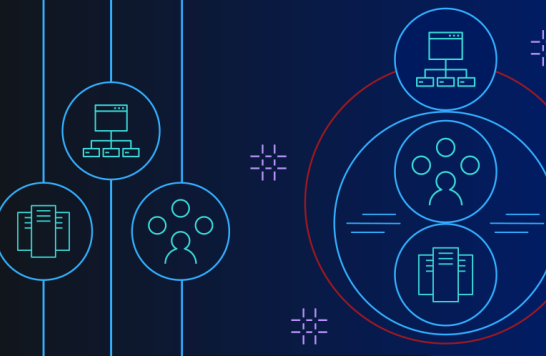Conquering Vulnerability with Cloud Security

Information is the product-theft is the concern, and hacking is the preferred method of stealing your files. Hacking is commonly referred to as the most dangerous threat the United States faces when it comes to economic security. Due to the fact that the nature of "the cloud" depends on sharing resources, companies still seek the most effective ways to ensure identity management via authentication, privacy (of which the main concerns are):
- Sharing personal information
- Access to messages, and how to send anonymous messages
- Access control, restricting employee's access to information
The need for better security affects every organization including cloud providers such as Amazon Web Services (AWS), Microsoft and Google.
How Cloud Security Benefits Your Company
Cloud computing security functions are similar to traditional IT security in that they both protect information from theft, leakage, and deletion. The advantage of implementing cloud security services is it allows a company to operate at scale while remaining secure. Cloud security gives you a new, efficient way of addressing security threats. The results you realize from using cloud security will not change, however, the overall process becomes easier, increasing your ability to accomplish the desired tasks in a more productive way.
Attributes and Advantages
There are policies and technologies in place that are specifically designed to protect a company's data and infrastructure within a cloud computing environment without the high expense associated with facility maintenance and hardware. Cloud security frees you from managing physical servers and/or storage devices. Security tools are software-based for monitoring and protecting information as it flows in and out of your cloud resources. Reliable cloud security should always address the following issues:
- Identity
- Access management
- Data privacy
- Unauthorized access
- Malicious use
- Modifications
Cloud Security Versus IT Security
Cloud Security
- Outsourced management using third-party data centers
- Less expensive upfront investment for infrastructure
- Increased scalability
- Increased resource utilization
- Cost based on usage
Traditional IT Security
- Data centers are in-house
- Higher initial costs
- Slower scaling
- Less efficiency
- Higher overall cost
Cloud computing security processes should address the security controls the cloud provider will incorporate to maintain the customer's data security, privacy, and compliance with necessary regulations. These processes may also address business continuity as well as a plan to back up lost data resulting from a cloud security breach.
Resources
-
Strong Automation Strategy Is Key During Pandemic Recovery
As workplaces figure out their new normal, automation has a role to play – but the ad hoc implementation that happened during the COVID-19 pandemic can't continue.
-
Keeping your IBM Power Systems highly available
IBM Lab Services helps you deploy the building blocks of a next-generation IT infrastructure that empowers your business.
-
Making storage simple for containers, edge and hybrid cloud
IBM Spectrum® Fusion is a container-native software defined storage (SDS) solution that fuses IBM’s trusted general parallel file system technology (IBM Spectrum® Scale) and its leading data protection software (IBM Spectrum® Protect Plus).
-
8 reasons why IBM Power Systems is your app modernization foundation
Application modernization comes in many shapes and sizes, and it’s not always easy to know where to start. Check out the strengths and benefits that IBM Power Systems brings to your modernization efforts.
Questions?
Are you ready to make the most of IT? Schedule a call with an expert today.
Call 877-591-4015 or REQUEST A FREE CONSULTATION



